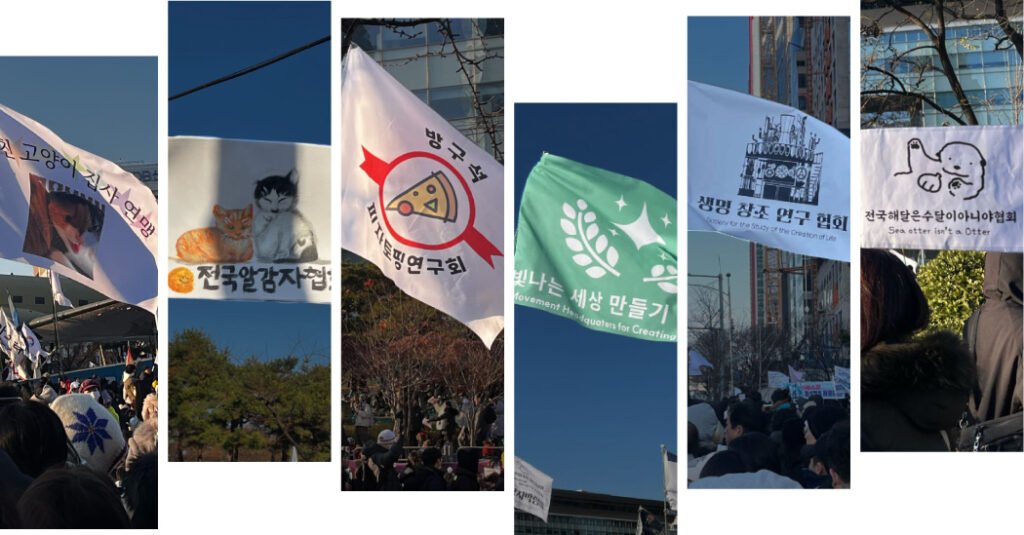As South Koreans took to the streets this month demanding the removal of their president, some found an unexpected outlet to express their anger: jokes and satire.
They raised banners and flags with whimsical messages about cats, sea otters and food. They waved signs and joked that President Yoon Suk Yeol’s declaration of martial law had forced them to leave their comfortable beds. Images of the flags spread widely on social media.
The idea was to use humor to build solidarity against Mr. Yoon, who has vowed to fight his impeachment over his ill-fated Dec. 3 martial law decree. Some waved flags for non-existent groups such as the so-called Dumpling Association, a parody of real groups such as unions, churches or student clubs.
Video by Yu Young Jin/The New York Times
Photos by Weiyi Cai/The New York Times
“I just wanted to show that we are here as part of the people, even if we are not really part of a civic group,” said Kim Sae-rim, 28, who waved the dumpling group’s flag at a recent protest rally. She went there with friends. Some groups pointed to other local specialties such as pizza and red bean pastries.
Kwon Oh-hyouck, a veteran protester, said he saw such flags for the first time during the protest Demonstrations in 2016 and 2017 This ultimately led to the ouster of President Park Geun-hye. Mr. Kwon said satire is part of the Korean spirit of protest.
“People mock serious situations even when those in power come out with guns and knives,” he said. “You won’t be intimidated.”
Over the past month, protesters have formed a variety of unorthodox groups. Some were self-proclaimed couch potatoes. Still others came together as people suffering from motion sickness.
Video by Chang W. Lee/The New York Times
Photos by Weiyi Cai/The New York Times
Video by Weiyi Cai/The New York Times
Photo by Chang W. Lee/The New York Times
Lee Kihoon, a professor of modern Korean history at Yonsei University in Seoul, said he believes the flags at this month’s protests reflect the diversity of people galvanized by the president’s attempt to impose military rule .
“They’re trying to say, ‘Even for those of us who have nothing to do with political groups, this situation is unacceptable,'” he said. “‘I’m not a member of any party or anything, but this is outrageous.'”
Some held signs mocking Mr. Yoon, claiming he separated them from their pets at home and disrupted their routine of watching Korean dramas. One group described itself as an association of people behind schedule, citing the idea that the need to protest martial law had forced them to reschedule their appointments.
Photo by Weiyi Cai/The New York Times
Photo by Chang W. Lee/The New York Times
And of course there were animals, both real and fake.
Photos by Weiyi Cai/The New York Times
South Koreans have shown that protests for serious causes – such as the removal of a president – can still have a welcoming, optimistic and carnival-like atmosphere.
“I don’t know if the protesters realize it, but even though they are angry, they have not become serious, serious or moral,” Mr Lee said. “The flags have had a calming and relaxing effect.”
On the day lawmakers voted to impeach Mr. Yoon, protesters who were K-pop fans brought glow sticks to rallies and danced to pop songs blaring from speakers. “Even though this is a serious day,” said Lee Jung-min, a 31-year-old fan of the band Big Bang, “we might as well enjoy it and keep our spirits up.”
Video by Chang W. Lee/The New York Times





